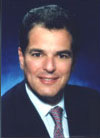Successful Hotel Brand Differentiation Means Connecting With Customers | By Rick Swig
Branding has become increasingly important in the hospitality segment. There are, of course, the large hotel brands, which seem to grow larger every day with strategic market segment tiers, and then the well-known, single-entity hotels, which will never be more than “brands of one.” Yet branding must extend beyond sticking a logo on building signage and letterhead. Any brand must tap into the psyche of customers to stimulate the highest level of interactivity. 
Super-luxury and economy lodging brands are not at all related based on their guestroom features, service standards and amenities, but each must rely on its ability to stand out within its own tier. If one drives along the highways and byways of the US or into suburban corporate centers, the difference between the sub-segments of full-service, focused-service and limited-service outlets becomes fuzzy at best. This clustering is what some have referred to as the “hotel brand pu-pu platter.”
Clusters of sub-brand offerings by larger hotel flags provide a cafeteria of choices for every economic or service market segment. These sub-brands distinguish themselves with beds, bathroom, amenities and breakfast (free or not), but these things may be ambiguous to the average traveler, especially if the price differential is relatively minimal.
Room rates may vary between $10 and $20 among limited-service and the full-service hotel units, but when looking more closely, the value differentiation may become unclear. The more expensive full-service hotel could offer three-meal service, better bathroom amenities and a slightly more comfortable mattress, but it might also charge $12 for breakfast or $10 for high-speed Internet connectivity. The same mega-brand’s limited-service offering would provide a lower rate for a possibly lesscomparable guest room, but include free breakfast, free Internet connectivity and no service charges of any kind. Thus, the value proposition is unclear.
This also extends into urban markets, with even greater confusion, where games of brand musical chairs quite often occur. One only needs to look into major markets where Westins become Hyatts, Wyndhams become Hiltons, Hyatts become Meridiens and independent hotels become brands and vice-versa. What is the customer to believe? What will stop hotel brand dilution into a non-descript commodity product?
Individual hotel operators must seek to define their properties within their immediate communities or targeted customer bases. This may be achieved either through creating unique service aspects within the hotel or outreach to the community.
Full-service hotels can do this easily. An operator can become more creative with food and beverage products or add a spa, fitness center or other lifestyle facility. Lessons for differentiation can be best learned from the boutique hotel segment, which has exploited lifestyle and local stimuli to mirror customer preferences and sensibilities. Even the most rigid of branded operations can extend service aspects to include location connections with which customers may personally identify. This might be implemented through guest services, guest room accessories or other references within the hotel’s product programming.
Even limited-service or focused-service operators can tap into local food and beverage specialties to present these as part of breakfast, manager receptions or evening snack hours. Further local references can be established with employee uniforms or available reference periodicals.
People do buy brands, but most importantly they buy an extension of themselves. As hotels continue to change names, brand clarity deteriorates, and it will become even more important for individual hotel units to develop methods to ensure they can be recognized above the noise and clutter to establish market penetration. Standing out among the competition or within an individual community should be a continuing priority for all hotel operators and owners.
Rick Swig
Phone: (415) 541-7722
Email: rickswig@rsbaswig.com
RSBA & Associates
www.rsbaswig.com
400 Spear Street, Suite 106
USA - San Francisco, CA 94105
Phone: (415) 541-7722
Fax: (415) 541-5333
Email: rickswig@rsbaswig.com
Lenders to Lodging Industry Must Come Out of Their Foxholes | By Rick Swig, ISHC
Pricing to profit | By Rick Swig
Hotel Real Estate Owners Face a Brave New World | By Rick Swig, ISHC
